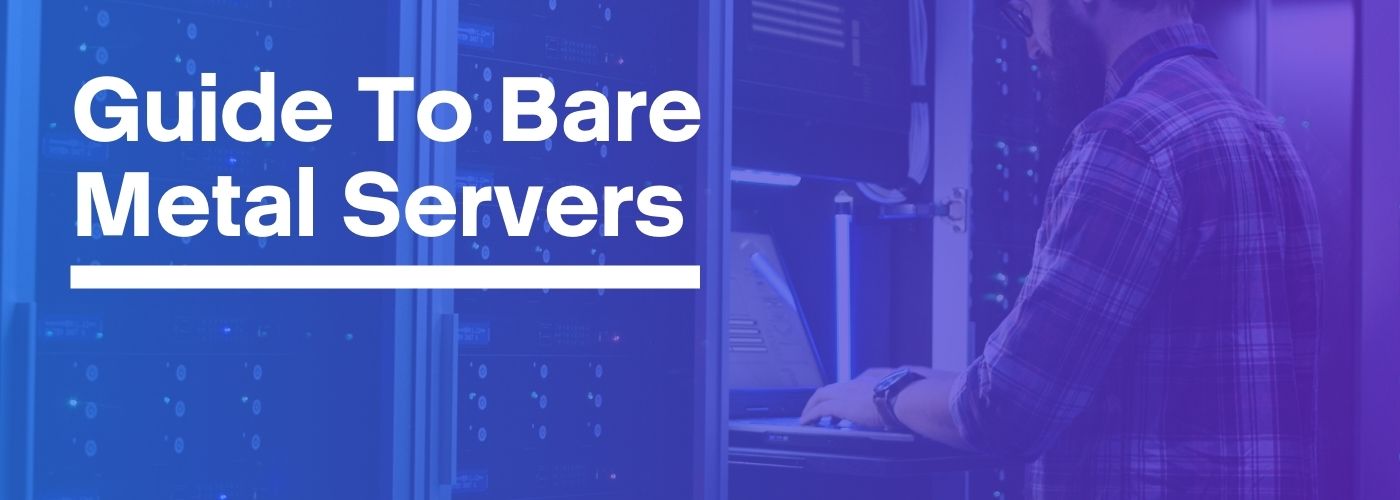When it comes to infrastructure, the landscape can be overwhelming with numerous options available. One particular standout in this field is the bare metal server—a powerful and versatile solution that offers unique advantages for various applications.
Read along as we unravel the intricacies of bare metal servers, from understanding what they are to exploring the nuances of their security and management.
What Is A Bare Metal Server?
At its core, a dedicated bare metal server is a physical machine entirely committed to a single user or organization. It provides an exclusive and undivided computing powerhouse to satisfy even the most resource-demanding workloads.
This exclusivity translates into unparalleled performance and control. With a bare metal server, users have direct access to the underlying hardware, allowing for optimal customization and resource allocation. It’s like having your own piece of the digital universe—a server that caters specifically to your needs!
Bare Metal vs Dedicated Server
To grasp the essence of a bare metal server, it’s crucial to distinguish it from a traditional dedicated server. While both involve dedicating an entire physical server to a single user or organization, the key difference lies in the level of control and customization.
A dedicated server, in the conventional sense, typically comes pre-configured with certain software or settings. It’s like moving into a furnished house where some decisions have already been made for you. On the other hand, a bare metal server is more akin to an empty canvas. It provides users with a blank slate, ready to be tailored to their exact specifications.
This flexibility is particularly advantageous for users with specific performance requirements or unique software needs. Whether you’re running resource-intensive applications, handling sensitive data, or seeking optimal performance for your network, a bare metal server empowers you to shape the environment to suit your goals.
All Sharktech dedicated servers are bare-metal and provide the benefits described above.
Importance of Bare Metal Server Security
Security is of major importance in the digital landscape, and bare metal servers offer robust features to address these concerns. One of the primary advantages lies in isolation provided by a dedicated physical machine. This isolation enhances the server’s overall resilience against external threats. It also enables direct access to the hardware where users can implement security measures tailored to their specific needs.
When considering security for a bare metal server, it’s essential to focus on both physical and digital aspects. Physically securing the server is the first line of defense. Placing the server in a secure data center or colocation center with controlled access ensures that only authorized personnel can physically interact with the hardware.
On the digital front, implementing firewalls, encryption, and regular security updates is crucial. Regular monitoring of server logs can also provide insights into potential security threats, allowing for proactive measures to be taken. By combining physical and digital security measures, users can create a robust defense strategy for their bare metal servers!
Bare Metal Server Management
The freedom of customization provided by bare metal servers extends to the realm of management. While having complete control over your server is empowering, it also comes with the responsibility of efficient management.
To streamline the management process, consider using server management tools that simplify tasks such as monitoring performance, configuring settings, and handling updates. Many infrastructure providers offer intuitive control panels that make these tasks accessible even for users without extensive technical expertise!
Regular maintenance is essential to keep a bare metal server operating at peak performance. This includes keeping software and applications up to date, monitoring resource utilization, and conducting routine checks for any signs of hardware issues. A proactive approach to management ensures the longevity and reliability of your bare metal server while also protecting against security threats impacting businesses.
A bare metal server is not just an infrastructure solution; it’s a canvas for digital innovation and customization. Understanding its nuances, from its distinction from dedicated servers to its security features and management practices, empowers users to harness its full potential.
Whether you’re launching a resource-intensive application or seeking top-tier performance for your infrastructure, a bare metal server will provide you with a great foundation.





More to Read
The OpenStack Public Cloud Complexity Problem (And Why It’s Costing You)
Choosing the right cloud platform today is akin to trying to pick a needle
Oct
Make Growth and Security Part of Your Public Cloud Management Strategy
Managing today’s cloud infrastructure is no longer just about spinning up servers or
Sep
Leading Cloud Service Providers Explained: Types, Benefits, and How to Choose
94% of businesses now use a cloud solution in some form. Whether it’s
Aug
What is Public Cloud? A Simple Guide For Businesses
What is public cloud? It’s a model of cloud computing where infrastructure and
Jul
What is Cloud Migration? A Practical Guide for Modern Businesses
What is cloud migration? It’s the process of moving digital assets—like data, applications,
Jul
Why Some Businesses Choose Self-Managed Cloud Instead
Cloud computing has revolutionized how businesses deploy, manage, and scale their digital infrastructure.
Apr